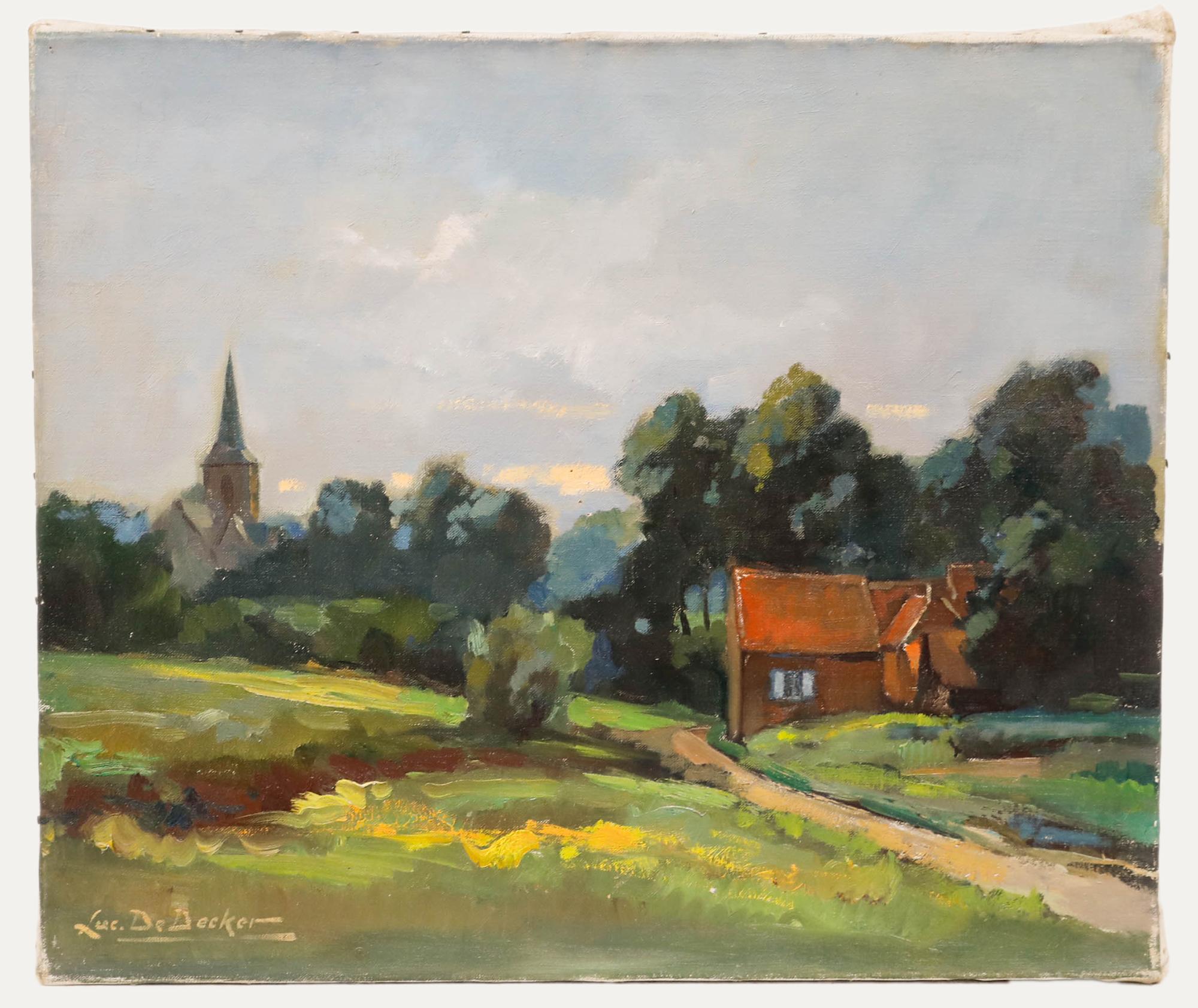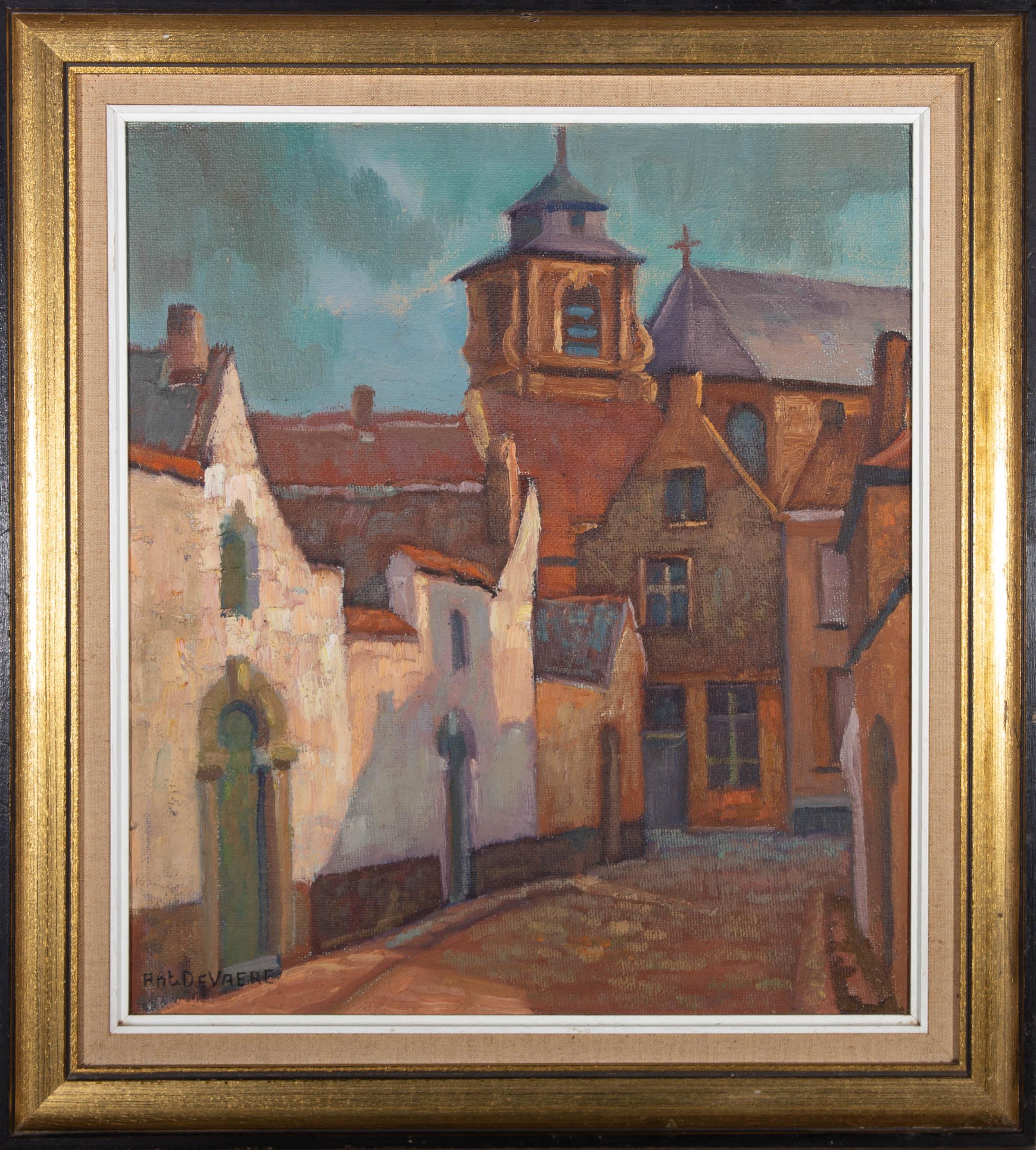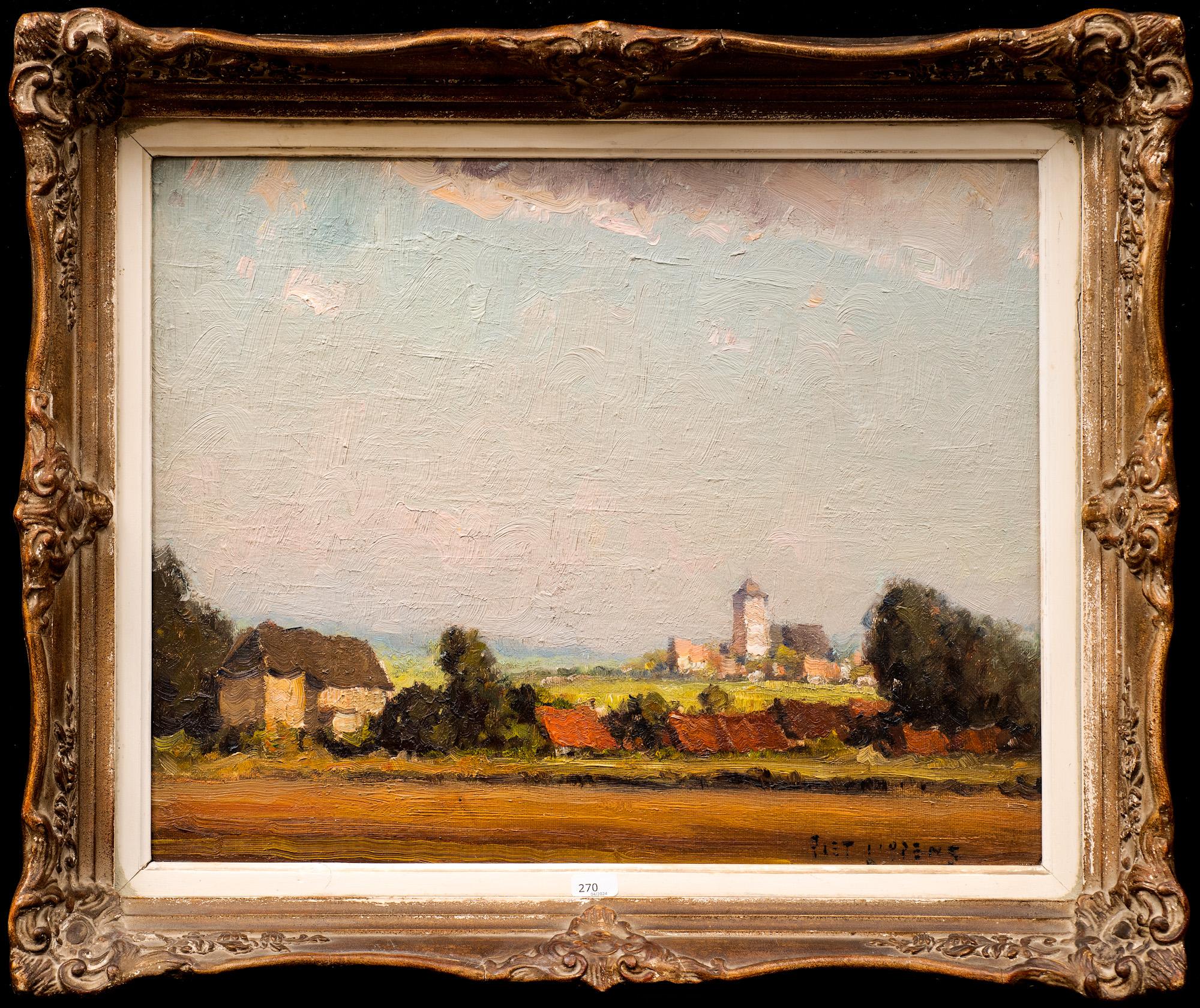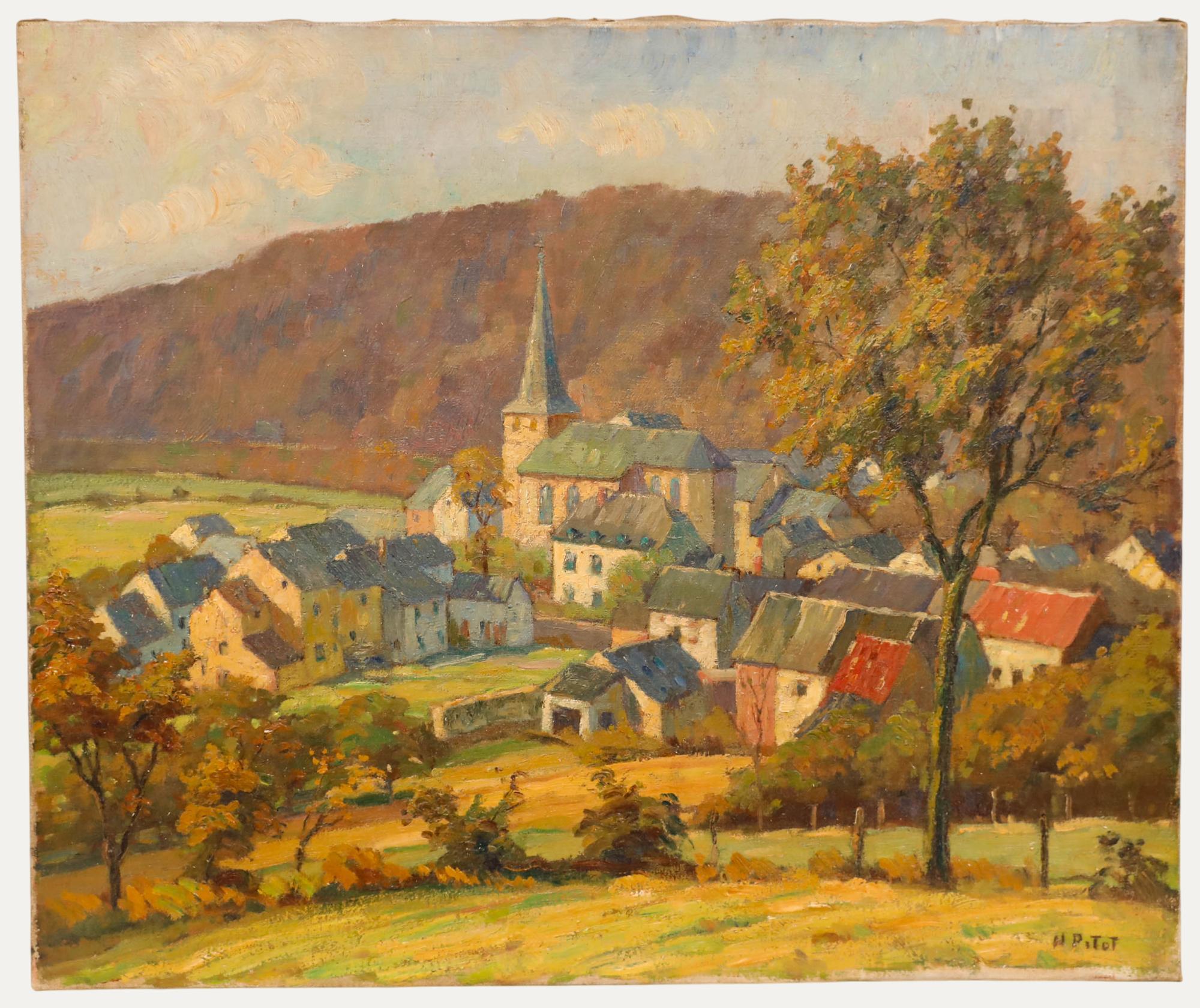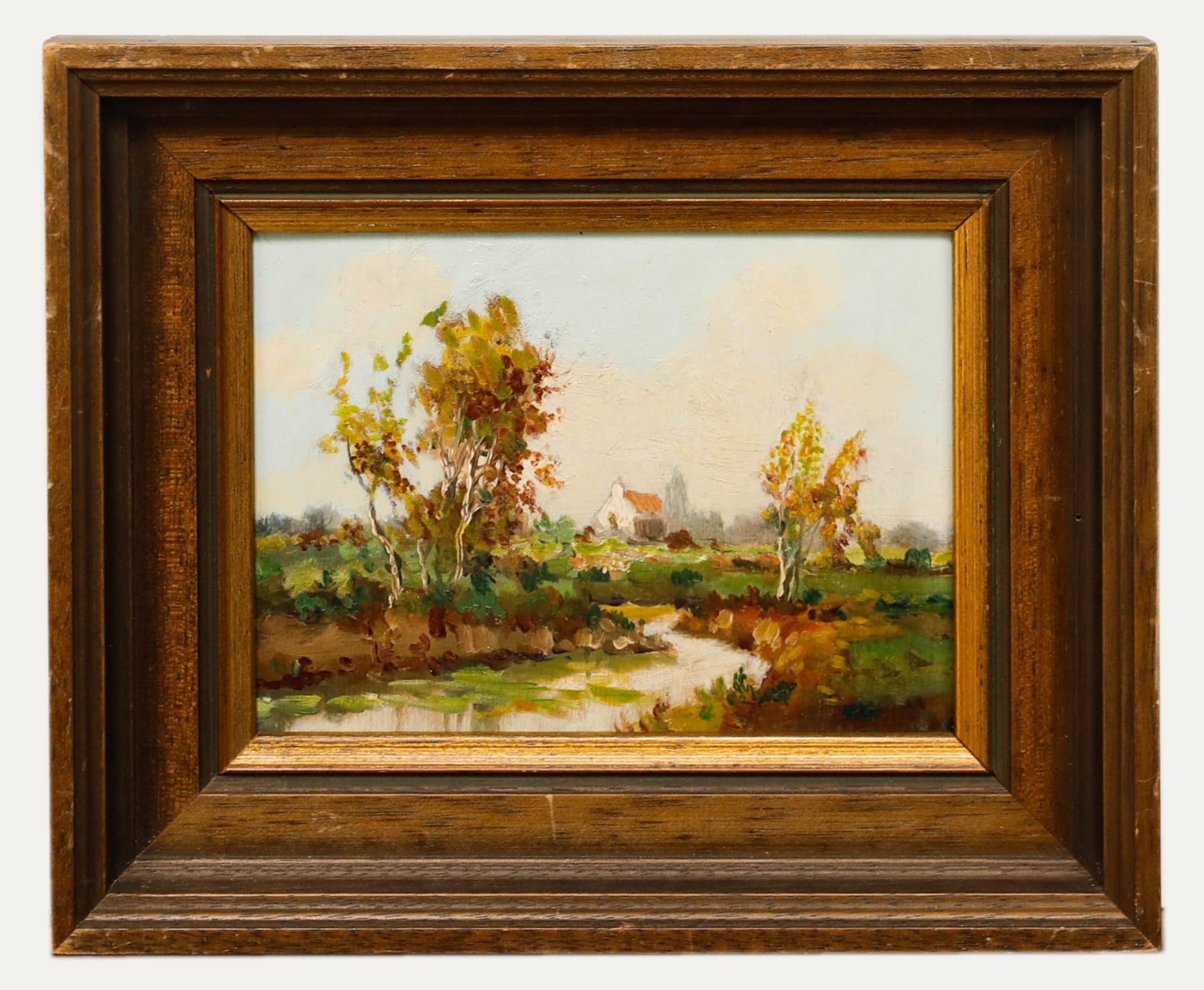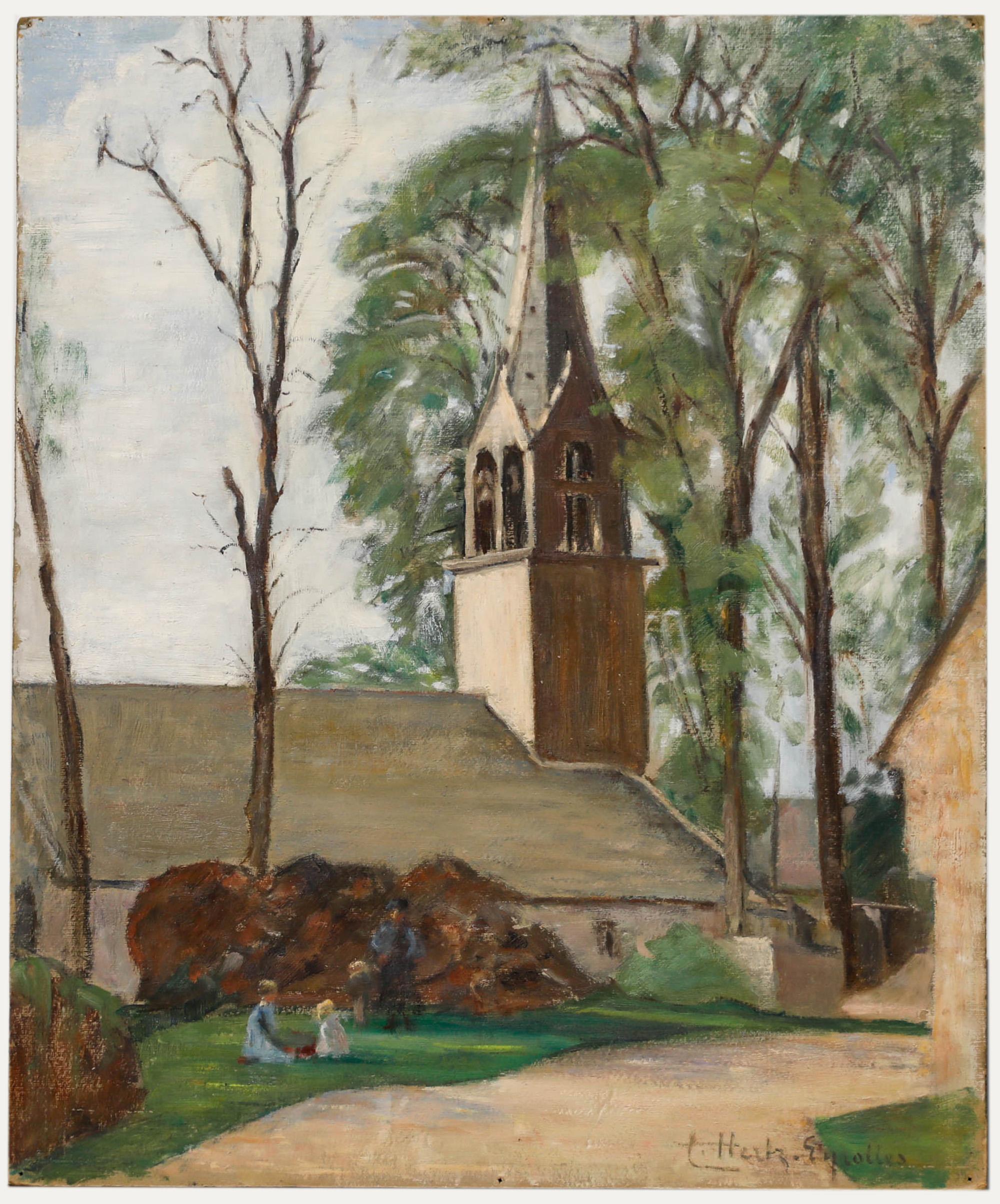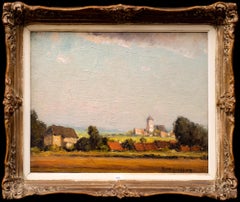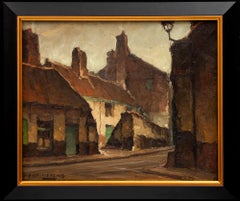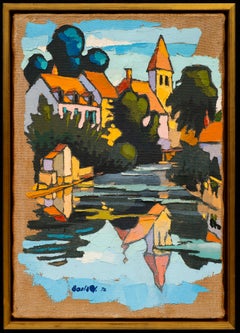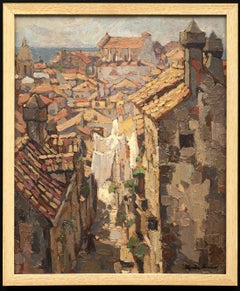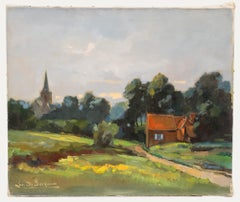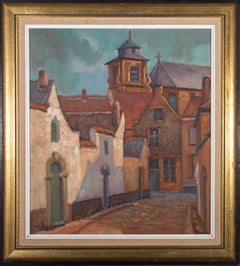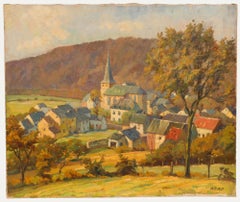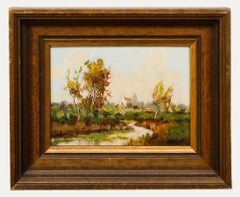Items Similar to "The Church Village" Piet Lippens (Belgian, 1890-1981)
Video Loading
Want more images or videos?
Request additional images or videos from the seller
1 of 13
Piet Lippens"The Church Village" Piet Lippens (Belgian, 1890-1981)Circa 1930s
Circa 1930s
$4,675
£3,549.18
€4,059.51
CA$6,531.65
A$7,264.62
CHF 3,793.36
MX$88,402.74
NOK 48,447.01
SEK 45,434.74
DKK 30,297.64
Shipping
Retrieving quote...The 1stDibs Promise:
Authenticity Guarantee,
Money-Back Guarantee,
24-Hour Cancellation
About the Item
"The Village Church"
Piet Lippens (Belgian, 1890-1981)
Circa 1930s
Oil on canvas, signed lower left
19 x 15 (25 x 21 frame) inches
Piet Lippens was a Post Impressionist painter from Belgium, born in Gentbrugge in 1890 and died in Ghent in 1981.
At the age of 17, Lippens left for New York City. After the War, he visited again and ultimately settled in Chicago for several months. During his military service he learned to draw and paint in his spare time at the Academy in Tournai under Chantry and Pion. Then left for the USA, this time to Chicago. When he returned to Belgium, he took lessons for several months at the Academy in Ghent under J. Delvin and at Sint-Lucas.
Lippens most realized works are landscapes, cities, and village corners. His works from the 1920s and 1930s, which are considered to be his best, utilize a darker pallet depicting factories, slums, barracks, prisons, shipyards, mills and caravans under a moody, gray sky. On his canvases he created a bold impasto by utilizing generous amounts of thick paint.
His works appear monumental, powerful, and sometimes hallucinatory. Throughout his life he would remain faithful to the realistic-impressionist style that he always appreciated, his work became more colorful and less melancholy in later years. Then he painted countless farms, castles and chapels. From the press: “His affection goes to weathered facades, vacant lots and ghostly factories on the outskirts of the suburbs.”
His work can be found in the Museum of Fine Art in Ghent, Belgium.
- Creator:Piet Lippens (1890 - 1981, Belgian)
- Creation Year:Circa 1930s
- Dimensions:Height: 21 in (53.34 cm)Width: 25 in (63.5 cm)
- Medium:
- Period:
- Condition:The painting is very good condition. The original frame is in good shape as well.
- Gallery Location:SANTA FE, NM
- Reference Number:1stDibs: LU1408216462692
About the Seller
5.0
Platinum Seller
Premium sellers with a 4.7+ rating and 24-hour response times
Established in 1995
1stDibs seller since 2020
118 sales on 1stDibs
Typical response time: 1 hour
- ShippingRetrieving quote...Shipping from: Santa Fe, NM
- Return Policy
Authenticity Guarantee
In the unlikely event there’s an issue with an item’s authenticity, contact us within 1 year for a full refund. DetailsMoney-Back Guarantee
If your item is not as described, is damaged in transit, or does not arrive, contact us within 7 days for a full refund. Details24-Hour Cancellation
You have a 24-hour grace period in which to reconsider your purchase, with no questions asked.Vetted Professional Sellers
Our world-class sellers must adhere to strict standards for service and quality, maintaining the integrity of our listings.Price-Match Guarantee
If you find that a seller listed the same item for a lower price elsewhere, we’ll match it.Trusted Global Delivery
Our best-in-class carrier network provides specialized shipping options worldwide, including custom delivery.More From This Seller
View All"Landscape at Dawn" Piet Lippens (Belgian, 1890-1981)
Located in SANTA FE, NM
"Landscape at Dawn"
Piet Lippens (Belgian, 1890-1981)
Circa 1930s
Oil on canvas, signed lower left
19 x 15 (24 x 20 frame) inches
Piet Lippens was a Post Impressionist painter fro...
Category
1930s Landscape Paintings
Materials
Canvas, Oil
"View in Gent" Piet Lippens (Belgian, 1890-1981) circa 1920s
Located in SANTA FE, NM
"View in Gent"
Piet Lippens (Belgian, 1890-1981)
Circa 1920s
Oil on canvas, signed lower left
23 3/8 x 19 3/8 (24 x 28 frame) inches
Piet Lippens was a...
Category
1920s Realist Landscape Paintings
Materials
Canvas, Oil
Landscape Painting of Dijon France, Burgundy Canal by Jean Boulay (1937-1994) A
Located in SANTA FE, NM
Pair of Landscapes: Dijon France, Burgundy Canal
Jean Boulay (French, 1937-1994)
Oil on canvas
Signed and dated
21 1/2 x 15 inches (each)
The pair landscape...
Category
1970s Expressionist Landscape Paintings
Materials
Canvas, Oil
"Village Près de la Mer en Italie" Jacques Martin-Ferrières (1893-1972)
By Jacques Martin-Ferrières
Located in SANTA FE, NM
"Village Près de la Mer en Italie"
Jacques Martin-Ferrières (1893-1972)
1950s
Oil on panel
18 x 14 1/2 (22 x 18.5 frame) inches
Published "Intimité & Horizons" by Marie-Anne Destreb...
Category
1950s Post-Impressionist Landscape Paintings
Materials
Oil, Wood Panel
Landscape Painting of Dijon France, Burgundy Canal by Jean Boulay (1937-1994) B
Located in SANTA FE, NM
Pair of Landscapes: Dijon France, Burgundy Canal B
Jean Boulay (French, 1937-1994)
Oil on canvas
Signed and dated
21 1/2 x 15 inches (each)
The pair landscape...
Category
1970s Expressionist Landscape Paintings
Materials
Canvas, Oil
"The Harvesters" Raphaël Dubois aka Chanterou (Belgium, 1888-1960)
Located in SANTA FE, NM
"The Harvesters"
Raphaël Dubois aka Chanterou (Belgium, 1888-1960)
Signed bottom left under the pseudonym "Chanterou"
Oil on canvas
23 1/2 x 19 1/4 (27 3/4 x 23 3/4 frame) inches
Born in Liege in 1888, he enrolled at the age of fourteen at the Academy of Liege where he studied under Evariste Carpentier...
Category
1920s Landscape Paintings
Materials
Canvas, Oil
You May Also Like
Luc De Decker (1907-1982) - Mid 20th Century Oil, Church In The Countryside
Located in Corsham, GB
This pastoral landscape painting captures the tranquil essence of rural life, featuring a quaint red-roofed cottage nestled among lush green trees with a church spire rising in the d...
Category
20th Century Landscape Paintings
Materials
Oil
Antoon De Vaere (1900-1989) - Mid 20th Century Oil, Village View
Located in Corsham, GB
This charming study depicts a back street of a continental town in rich colours and bold forms. The artist has used a impasto technique in the foreground to create a contrast in text...
Category
Mid-20th Century Landscape Paintings
Materials
Oil
$440 Sale Price
20% Off
Nicolas Pitot (1890-1970) - Mid 20th Century Oil, A View of the Village
Located in Corsham, GB
A delightful mid 20th century oil by the artist Nicolas Pitot (1890-1970) depicting a quaint French village. The artist uses textural brushstrokes to great effect, expertly capturing...
Category
20th Century Landscape Paintings
Materials
Oil
Attrib. Johan Meyer (1885-1970) - c.1965 Oil, Church By The Stream
Located in Corsham, GB
This pastoral landscape painting captures the serene beauty of a rural scene, with a winding stream leading the eye towards a distant church spire nestled among autumn-hued trees. In...
Category
Mid-20th Century Landscape Paintings
Materials
Oil
Cecile Hertz-Eyrolles (1875-1974) - Mid 20th Century Oil, By The Church
Located in Corsham, GB
A delightful study depicting two figures sitting in a church green in high summer. Signed. Studio stamp verso. On board.
Category
20th Century Landscape Paintings
Materials
Oil
Large French 1960's Oil Painting Old French Village with Ancient Buildings
Located in Cirencester, Gloucestershire
The Old French Buildings (titled verso)
signed by Georges Bordonave (French contemporary)
dated 1969
oil painting on canvas, unframed
canvas: 20 x 24 inches
condition: very good
prov...
Category
Mid-20th Century Impressionist Landscape Paintings
Materials
Oil
More Ways To Browse
Circa 1890 Paintings
Vintage Caravan
1920s Farm Painting
Dark Moody Oil Landscape Painting
J J Moody
Piet Lippens
George Harrison Marks
Oprah Winfrey
Henner Oil Painting
Hens Oil Painting
Impressionist Sheep
Lily Pad Painting
Margaret Martin
Oil Paintings Capri
Original Paintings Wild Horses
Reed Oil On Canvas
Antique Railroad Signs
George Washington Bridge
